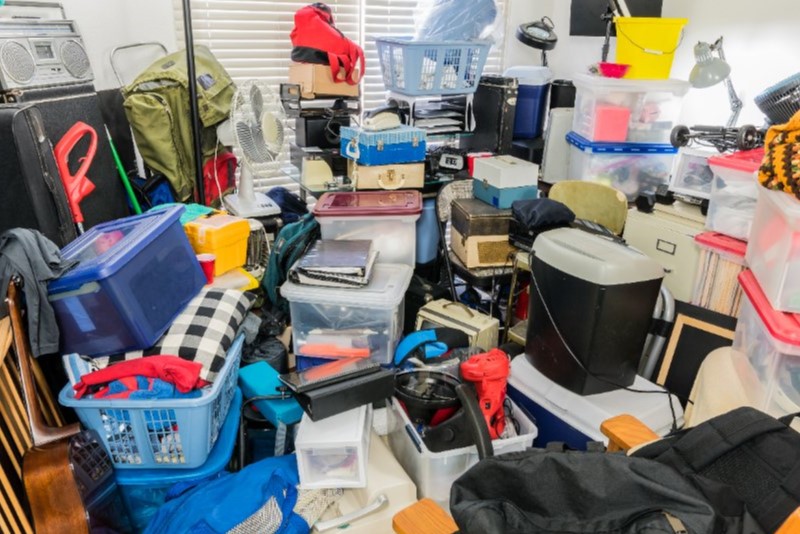
Minimalism is the practice of excluding things that have little or no value. By doing this, minimalists are left with what they value the most. For example, if you got rid of the shirts you don’t really like, you are left with your favorites. It is no surprise that minimalism has improved the quality of life for many people. Also, some things go against the practice of minimalism. As you might guess, minimalists don’t like these things. Here are some of them:
Clutter
Reducing clutter is the most common reason why people become minimalists. So it should be no surprise that minimalists dislike clutter. Clutter is a type of disorder caused by the things that occupy your resources. So, clutter in your space is the disorder caused by the material things that occupy it. It becomes inevitable when there are more things than places to put them. In this case, reducing the number of things is the only way to fix it. This is where minimalism is very effective. Clutter can also happen with your time if you have too many tasks and not enough time. There is even mental clutter (too many things to think about). Minimalists dislike these types of clutter too.
Hopelessly redundant items
It is okay to keep spares of an item if its absence will cause an emergency. But you don’t need more spares than the number you will ever need to replace at one time. So if you have 3 people in your home who each use 1 pencil, you don’t need more than 3 spare pencils. If you have much more than that, they become hopelessly redundant. Minimalists dislike this because they know it only adds clutter.
Trendy things
Trends are often manufactured by merchants to get people to buy stuff they don’t need. Also, being trendy means you think many people want it even if you don’t care for it all that much. This is why the trendier something is, the quicker it goes out of fashion. Also, the dumber it looks when it does. It is no surprise that minimalists don’t waste their time, space, or money on trendy items.
Commitments that waste time
We know that minimalists don’t like clutter, including time clutter and mental clutter. Well, one source of such clutter is any commitment that wastes time. This is especially true for unnecessary commitments that they don’t care about. They know that their time is better spent on causes that mean something to them.
Impulse shopping
Impulse shopping is an effective way to turn your hard-earned money into clutter. This is why minimalists dislike it. If you live in comfort without something, you don’t suddenly need it when it enters your line of sight. Also, if you don’t need something at full price, you still don’t need it when it’s on sale. Minimalists keenly understand these principles. Also, by applying them, minimalists save themselves a lot of money.
Unopened boxes that gather dust
Boxes are good for transporting things, but they make a lousy decor. So, you should unpack them as soon as you can. Otherwise, they create clutter while slowing access to your things. That is because you can’t use your things while they are sealed away in a box. Also, this assumes that you can even remember what is in the boxes. This is why minimalists don’t like unopened boxes.
Paid storage
In some ways, paid storage is even worse than boxes. Paid storage turns your things into even bigger liabilities than they already are. So, having a picture in paid storage means paying money to not look at it. Keeping clothes in paid storage means paying money to not wear them. Paying to not use your things is a waste of money. Also, the longer you keep stuff in storage, the more it costs you. So if you use paid storage long enough, nothing in it is worth what you pay to keep it. This is why minimalists want nothing to do with paid storage. It is cheaper to get rid of the stuff.
Most single-function kitchen appliances
Most single-function kitchen appliances are a waste of money, space, and time. A sharp knife can do the job of most of them. Also, you usually waste more time cleaning them than you save by using them. In the end, they either break, gather dust, or both. It is no surprise that minimalists see them for the waste of resources that they are.
Useless gifts
Minimalists don’t want things they have no use for, even if these things are free. In some cases, the free things are even worse. It is easy to avoid buying something you don’t need, but it is hard to refuse a gift. It is because you might offend someone who you care about. Most minimalists will try to be as polite and tactful as they can. Regardless, it is still a delicate and difficult situation that they want to avoid.
In summary, minimalism is about excluding things that have little or no value. This leaves the minimalist with things that are of great value. With this philosophy, minimalists don’t like the following:
Clutter
Hopelessly redundant items
Trendy things
Commitments that waste time
Impulse shopping
Unopened boxes that gather dust
Paid storage
Most single-function kitchen appliances
Useless gifts
These things crowd your space, drain your energy, and waste your time and money. If you can avoid or remove these things, you will notice an improvement in your home and quality of life.
